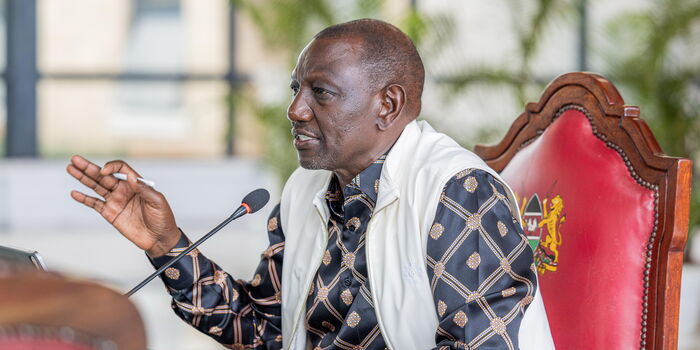The government is set to slash salaries and gratuities for civil servants working in constitutional and independent offices as part of efforts to reduce the public wage bill.
A recent report by the National Assembly Liaison Committee indicates that the government aims to implement salary and allowance reductions amounting to Ksh75.6 million.
This move is expected to lower the wage bill for these offices from Ksh4.16 billion to Ksh4.08 billion.
“Salaries and allowances for constitutional and independent offices are set to decrease by Ksh75.6 million, bringing the total wage bill for these offices down to Ksh4.08 billion,” reads part of the report issued by the committee, which is chaired by Gladys Boss Shollei.
Institutions Affected by the Cuts
The proposed salary and gratuity reductions will affect key institutions, including the Independent Electoral and Boundaries Commission (IEBC), the Salaries and Remuneration Commission (SRC), and the Public Service Commission (PSC).
However, in a notable exception, the National Police Service Commission (NPSC) will receive an increase in its budget, making it the only entity to benefit from an increment.
The report, which has been submitted to Parliament for debate, outlines significant changes, particularly for the IEBC.
The new commission members will face a 50 per cent cut in salaries and gratuities, a major adjustment from previous rates. Meanwhile, the SRC will see a reduction of Ksh33.1 million in gratuity payments and a Ksh23 million cut in allowances.
Understanding Gratuity and Its Role
Gratuity is a lump-sum payment given to civil servants upon their retirement or at the end of their contract. It serves as a financial reward for their service and is typically calculated as a percentage of their basic salary over the contract period. Contract-based employees are the primary beneficiaries of gratuity, with payments often equating to around 25 per cent of their total earnings during their contract term.
The National Police Service Commission stands out as the only institution receiving an increase. According to the report, NPSC will see its gratuity budget increase by Ksh36.8 million, while its salary allocation will rise by Ksh3 million.
For the IEBC, the changes will have a significant financial impact. The salaries and gratuities for the chairperson, deputy chairpersons, and commissioners will be cut by 50 per cent. This marks a major reduction compared to previous payouts.
When former IEBC Chairperson Wafula Chebukati and his fellow commissioners left office, they received approximately Ksh12 million and Ksh10 million, respectively. With the new changes, these amounts are expected to drop significantly.
Previous Salary Cuts and Government’s Wage Bill Reduction Efforts
This is not the first time the government has implemented cuts in the salaries of civil servants in constitutional offices. Back in 2020, the Salaries and Remuneration Commission (SRC) slashed the basic pay of workers in independent offices.
This decision came shortly after the government reduced the salaries of Members of Parliament (MPs), Members of County Assemblies (MCAs), and other senior state officials.
In 2023, the SRC further tightened its grip on public expenditure by scrapping retreat, sitting, and non-practice allowances for civil servants.
These measures were introduced as part of a broader initiative to control the rapidly rising public wage bill, which had nearly doubled within six years.
President William Ruto and his administration have been vocal about their commitment to cutting down government spending.
The president has pledged to reduce the wage bill to below 35 per cent of the country’s revenue. However, as of April 2024, the public wage bill was consuming approximately 43 per cent of government revenue, highlighting the urgent need for reforms.
By implementing these cuts, the government hopes to ease the financial strain caused by excessive wage expenditures while ensuring that funds are allocated efficiently.
However, the decision is expected to spark reactions from affected civil servants and stakeholders, as they brace for the financial impact of the reductions.
Join Gen z and millennials TaskForce official 2025 WhatsApp Channel To Stay Updated On time the ongoing situation https://whatsapp.com/channel/0029VaWT5gSGufImU8R0DO30


